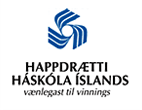Question
Is Icelandic the oldest language in Europe? How old is it?
Asked By
Friðrik Friðriksson
Answer
Icelandic is a West Nordic language. In Viking times (from about 800 to 1050 AD) the Norse language was recognised, that is to say, a language spoken by the Germanic nations in Scandinavia in both West Norse and East Norse. West Norse was spoken in Norway and east Norse in Sweden and Denmark. Iceland was colonised mostly from Norway, with most settlers coming from the southwest part of the country, from Hordaland, Sogn and the Fjords. But some also came from the British Isles, both of Celtic and Nordic origin. But the Celts did not have a significant effect on the development the Icelandic language. Evidence of Celtic (Gaelic) culture is limited to loan words and to people and place names. The development of the Icelandic language began when Norsemen had settled Iceland. In the first centuries of the settlement, Icelandic and Norwegian were still Norse dialects. The oldest manuscripts show that there was little difference between them. Though Icelandic had kept certain attributes that Norwegian had lost e.g. h before l, n and r in words like hlutr, hnefi and hringr. In the 13th century the difference between them grew, and in the middle of the 14th century they had become so distinct that they could hardly be called dialects any more. From that time they are considered to be separate languages. It is well known that it is normal for languages to change. For example, the language Icelanders speak today is not quite the same as the one they spoke 10 or 20 years ago, even though we go no further back than that. Changes in a language inhibit people's understanding of older language. The result is often that people no longer understand older texts in what they refer to as their native language. When this is the case, it is valid to ask whether it is in fact the same language. Of course the language has undergone great changes. But despite considerable changes, languages may be considered "the same", so long as they preserve certain attributes that differentiate them from other languages and where the differences between their dialects are not so great that they effectively become other languages. If we define languages in this way, it is clear that Icelandic cannot be the oldest language in Europe. If we take the Germanic languages as an example, then High German would be older. It can be found in texts as far back as the 8th century. It should also be noted that Greek, which belongs to the Indo-European family of languages, has been spoken for more than 4000 years. The oldest sources of written Greek are considered to be from about 1650 BC. The next oldest texts are from the 14th and 13th centuries BC. It may be that the question raised above does not relate to the age of the Icelandic language, but rather how old it is relative to other languages. The question refers to the fact that Icelanders can quite easily read their ancient literature, dating back to the 12th century. This is certainly unique. But it would be a great misunderstanding to assume that Icelandic has changed little from the 12th century to the present day. The phonetic system has changed considerably, while inflections, syntax and vocabulary have been preserved better. Spelling is actually one of the most significant factors in enabling Icelanders to read their ancient literature. One has to keep two things in mind here: On the one hand there is the fact that editions of the ancient literature have been published for the public, with modern spelling. Then there is the fact that modern Icelandic spelling is very conservative and largely follows the ancient spelling. If Icelandic is compared to related European languages, with respect to ancient structure, it can be seen that Baltic and Slavonic languages can compete with it. Many philologists believe that Lithuanian is the oldest Indo-European language. As an example of the ancient structure of Slavonic languages, one can mention that Polish has retained seven of the eight cases of the original indo-European language, while Russia has retained six, and Iceland only four. In a nutshell the answers to the two questions are as follows: No, Icelandic is not the oldest language in Europe. Icelandic language development is as old as the settlement of Iceland by Nordic people. The same applies to the Icelandic language. Translated by Paul Richardson. Further answers in English:- Are portmanteau words frequent in Icelandic? by Guðrún Kvaran
- Why do male last names in Icelandic end with -son instead of -sonur? by Guðrún Kvaran
- What is the origin of the Icelandic language? by Guðrún Kvaran
- Are there rules that say when words in Icelandic should be masculine, feminine and neuter? For a foreigner it is not enough to add an article. by Guðrún Kvaran
- How did the Icelandic language start? by Guðrún Kvaran
- What is the shortest sentence in Icelandic to contain all the letters of the Icelandic alphabet? by Guðrún Kvaran
- How many words are there in Icelandic? by Guðrún Kvaran
- How many words are there in Icelandic for the devil? by Guðrún Kvaran
Um þessa spurningu
Dagsetning
Published 5.3.2005
Category:
Citation
Jón Axel Harðarson. „Is Icelandic the oldest language in Europe? How old is it?“. The Icelandic Web of Science 5.3.2005. http://why.is/svar.php?id=4797. (Skoðað 30.1.2026).
Author
Jón Axel Harðarsondósent í íslenskri málfræði við HÍ



